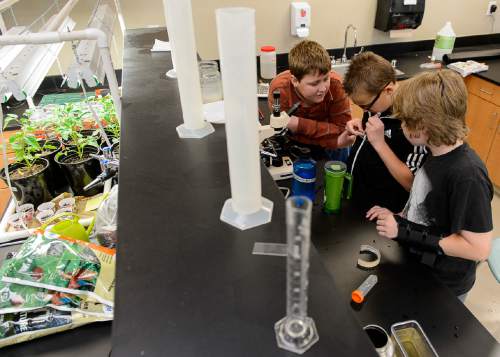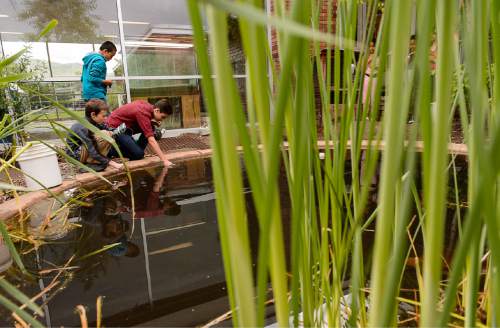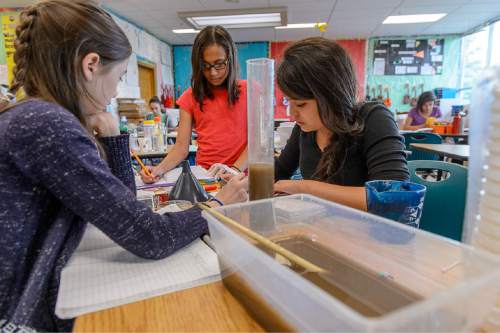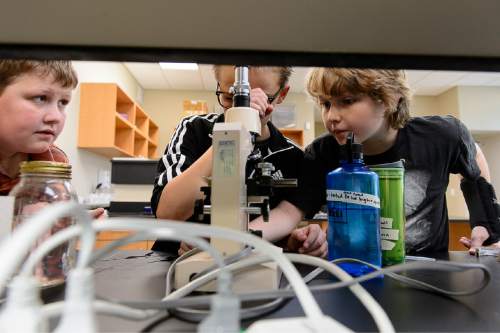This is an archived article that was published on sltrib.com in 2015, and information in the article may be outdated. It is provided only for personal research purposes and may not be reprinted.
Opponents of a proposed set of school science standards made a final pitch to state education managers Tuesday during the last of five informational meetings organized by the Utah State Office of Education.
Before the meeting, a group of roughly 15 people met at the Day-Riverside Library to review their concerns and strategize.
They were then joined by roughly 50 others at the Salt Lake Center for Science Education, where they spoke against the nationalization of science education and the inclusion of what they consider controversial topics in middle school classrooms.
"This is about science, but on a more important level this is about freedom," Christel Swasey said. "Academic freedom has to continue."
But there were as many supporters of the standards at Tuesday's meeting, who praised an update to Utah's science education framework.
The two sides alternated turns at a podium, with their comments occasionally prompting interruptions and applause from the audience.
Patrick Shea, a biology professor at the University of Utah and former head of the BLM, criticized the standards' opponents as "Luddites" who are out of touch with reality.
"What you're advocating is going to continue the perpetuation of ignorance into the future," he said.
At issue are a proposed set of science standards for Utah's sixth-, seventh- and eighth-grade students. The standards emphasize hands-on experiments and activities over the memorization of content, and include discussion of subjects like evolution and global climate change.
The standards are currently under review by the state school board, with a 90-day public feedback window set to end in mid-July. Part of that review has included public meetings throughout the state, which have generated often heated and divisive debate among parents and educators.
Alisha Jensen, a licensed social studies teacher from Sandy who home-schools her children, said she was disappointed by the representation of Tuesday's meeting.
She said most of the speakers were college professors and scientists, who don't necessarily reflect the views of parents.
"We heard from a lot of educators," she said. "We heard from a lot of experts and that's all really important. But we didn't really hear from a lot of parents."
Vincent Newmeyer, who served on a committee that reviewed the standards, reiterated his concern that the proposed changes include biased statements about controversial topics without allowing for data and evidence that disagrees with the prevailing consensus.
"If all we do is look for information that will support the theory, then what does the theory become?" Newmeyer said. "The theory becomes a mantra. It becomes a dogma. It becomes a belief system, a religion perhaps even."
Parent Kevin Emerson said he was glad to see updates to controversial topics being considered by the state school board. He said climate change is one of the major issues of the day and needs to be considered in schools.
"If our science standards don't include teaching our students about earth systems and earth science and climate change then we won't have the people who are skilled to really tackle the issue," he said.
Seth Jarvis, director of the Clark Planetarium, described the proposed standards as a step in the right direction for the state.
"They make sense," Jarvis said. "They do a good job of helping people learn to teach students to think like scientists."
The standards remain available for review and comment on the State Office of Education website. Any changes to the proposed standards are expected to occur after the public review period ends in July, with the state school board considering final adoption at that time.











